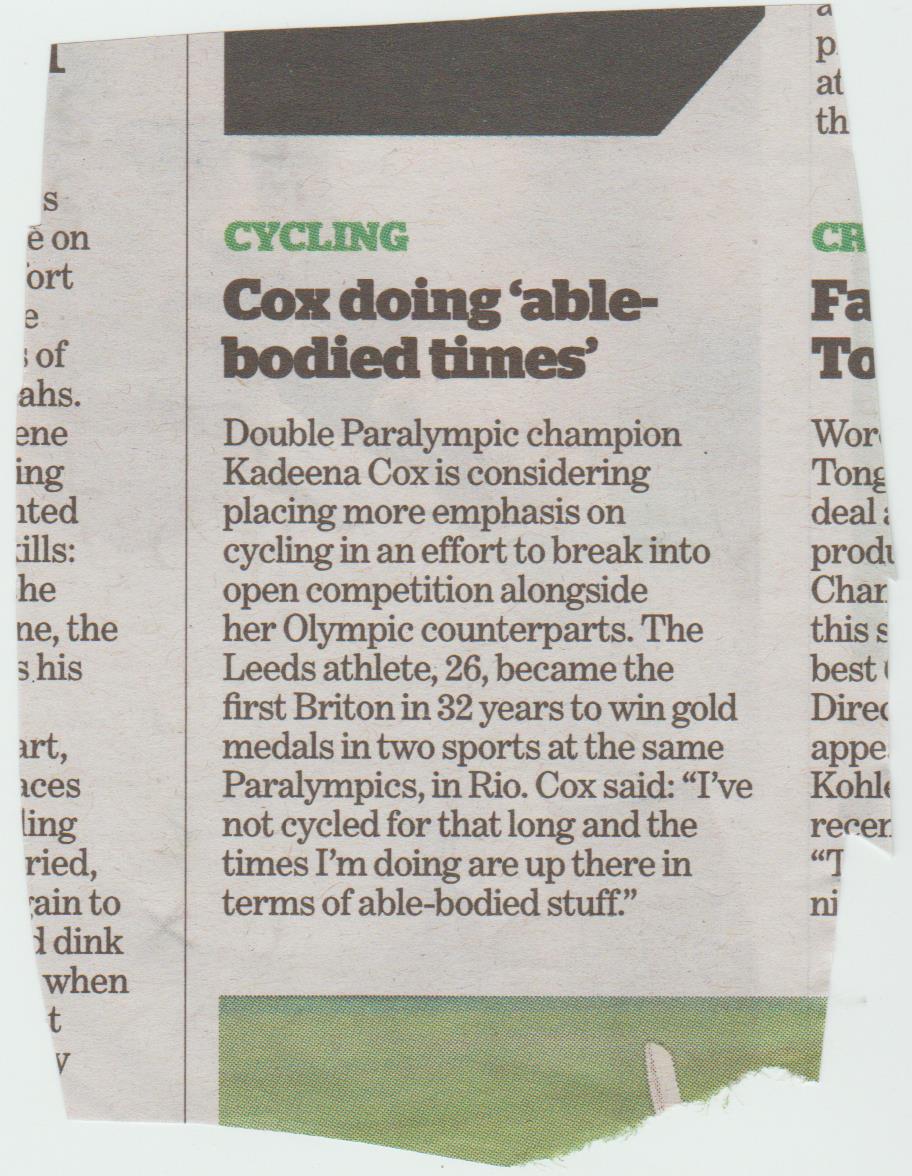 i newspaper, July 4, 2017
i newspaper, July 4, 2017
(69 words) You can’t say someone is a double Paralympic champion without saying what both sports are. The usual speedy check reveals that Cox won gold in cycling and 400m sprinting.
This is how I would do it:
Kadeena Cox, champion at last year’s Rio Paralympics in both sprinting and cycling, is considering concentrating on the latter to break into open competition with her Olympic counterparts. Cox, 26, from Leeds, said: ‘I’ve not cycled for that long and the times I’m doing are up there in terms of able-bodied stuff.’ She was the first Briton in 32 years to win gold in two sports at the same Paralympics. (70 words)
This identifies both sports at the beginning, places the quote next to the intro, to expand it, and moves the history to the end.
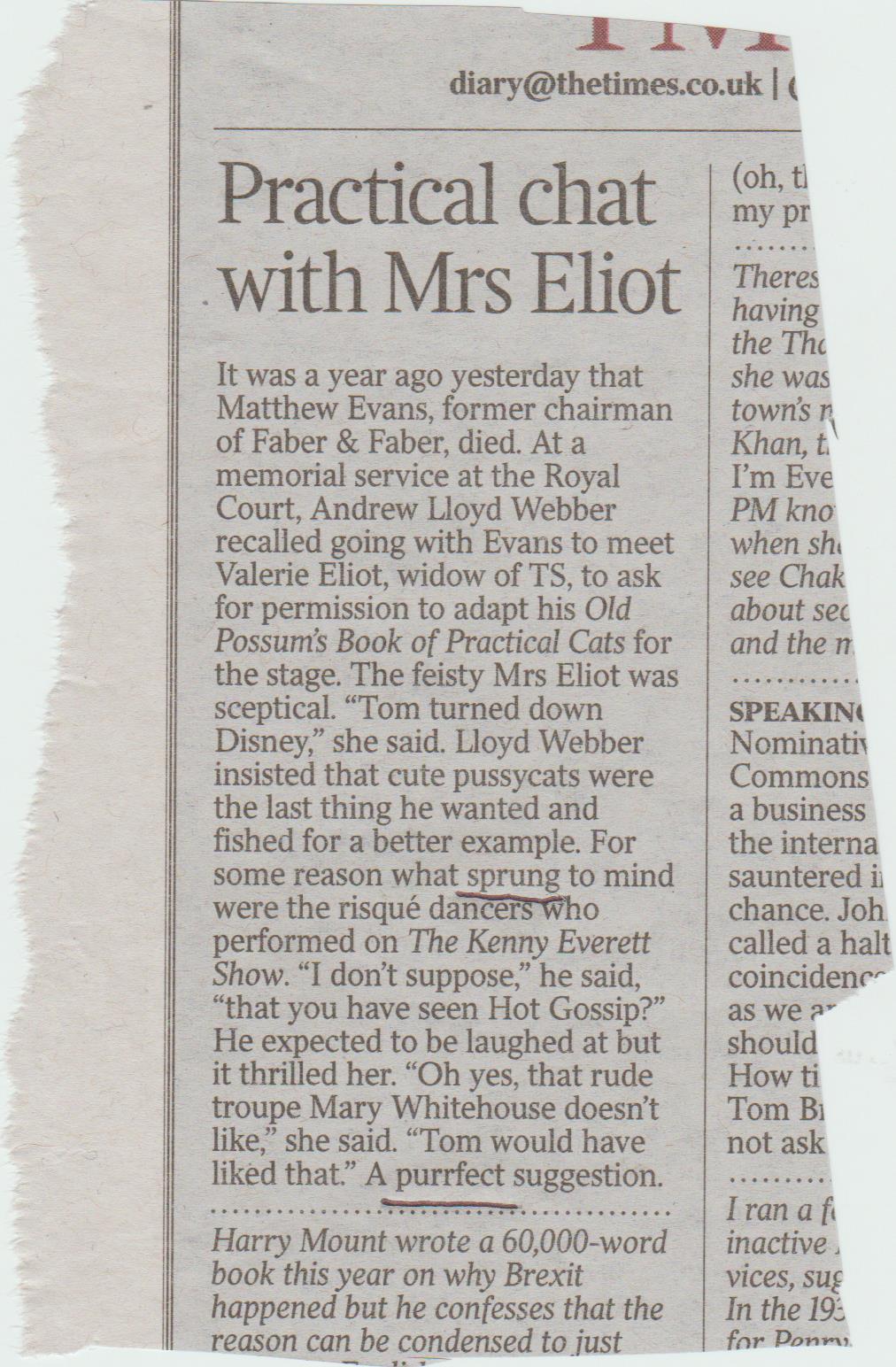 The Times, July 7, 2017
The Times, July 7, 2017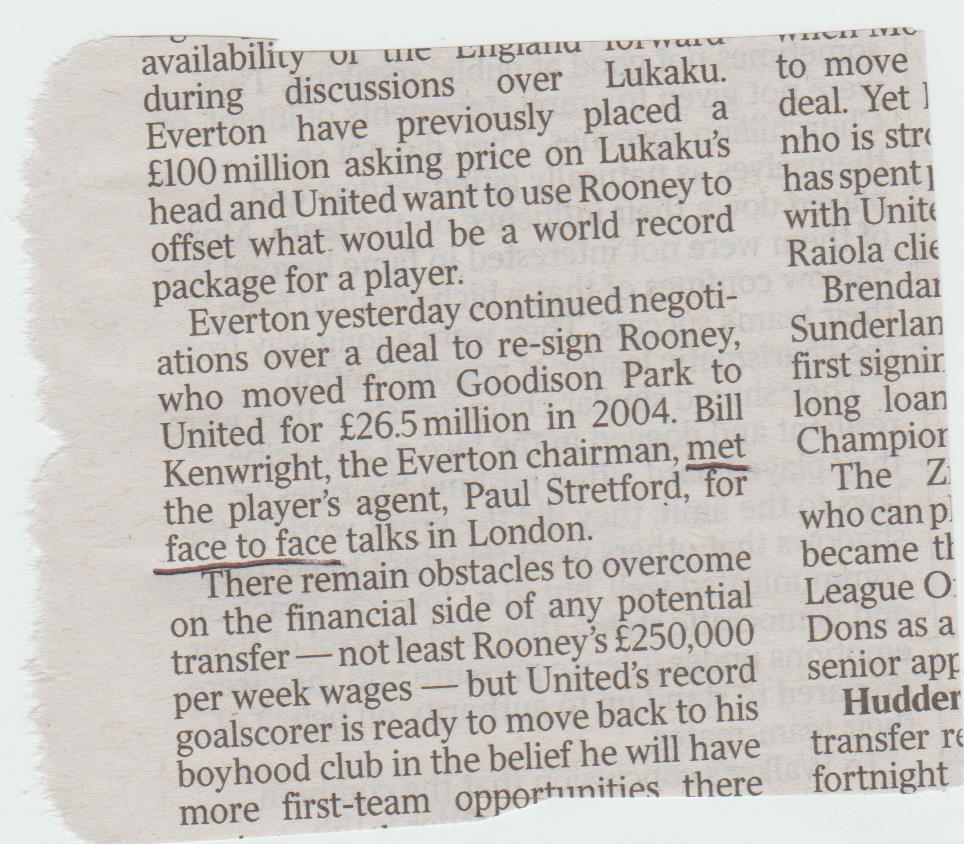 The Times, July 6, 2017
The Times, July 6, 2017 i newspaper, July 4, 2017
i newspaper, July 4, 2017 i newspaper, July 3, 2017 – Page One
i newspaper, July 3, 2017 – Page One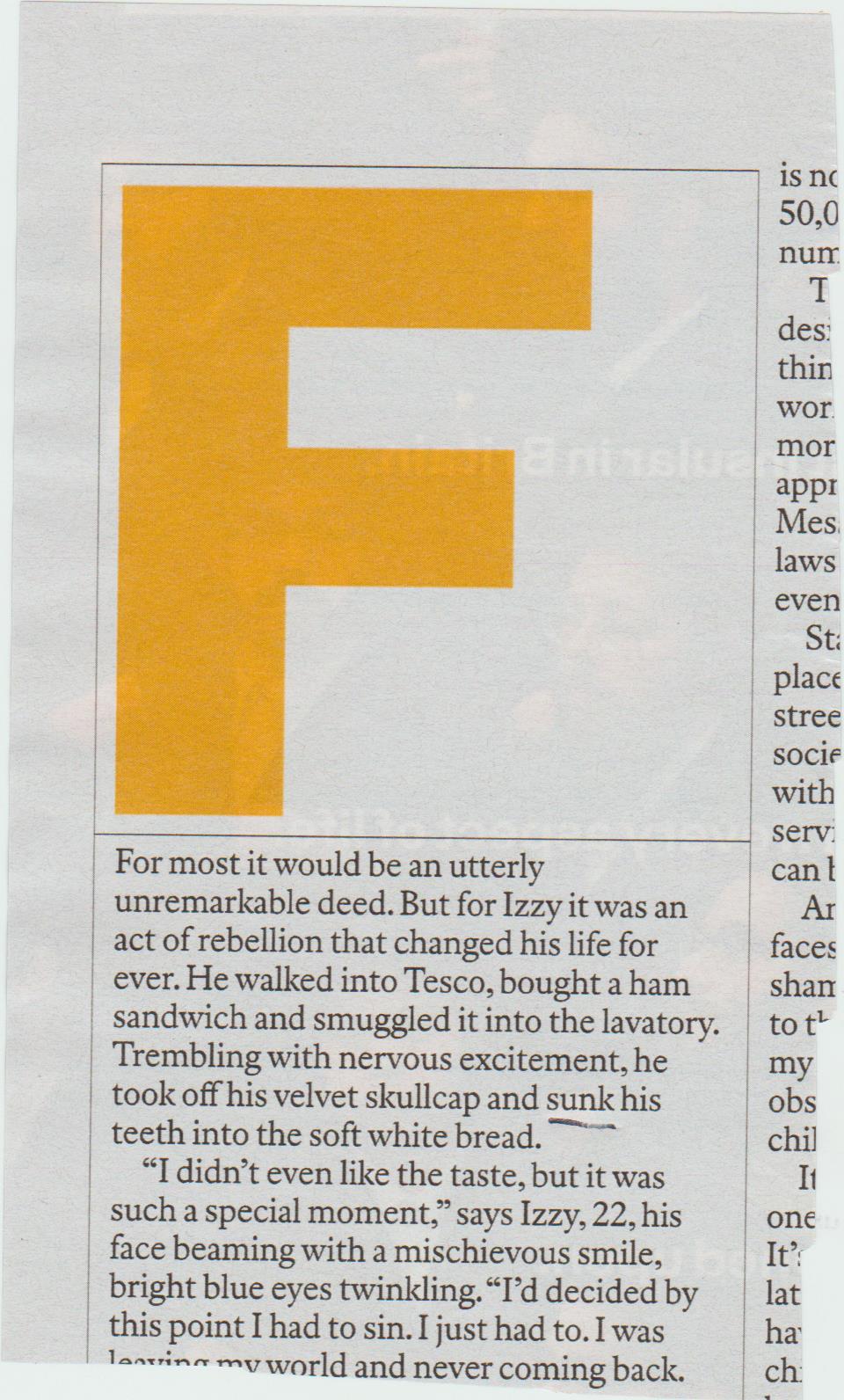 Sunday Times, July 2, 2017
Sunday Times, July 2, 2017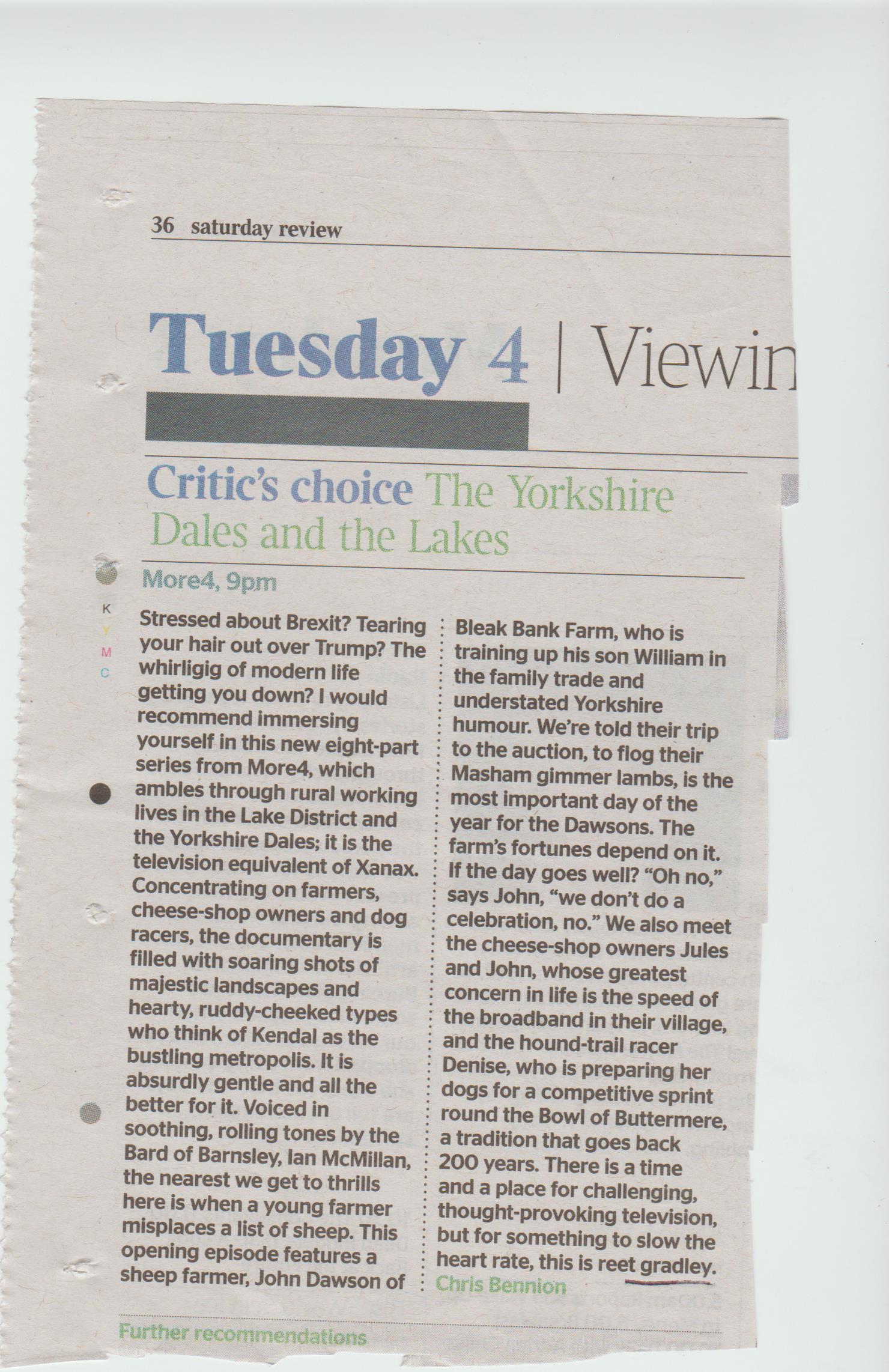 The Times, July 1, 2017
The Times, July 1, 2017 i newspaper, July 1, 2017
i newspaper, July 1, 2017 The Times, June 30, 2017
The Times, June 30, 2017
 i newspaper, June 29, 2017
i newspaper, June 29, 2017 i newspaper, June 28, 2017
i newspaper, June 28, 2017